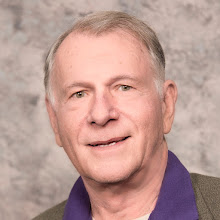Health is a state of
complete physical, mental and social well-being, and not merely the absence of
disease or infirmity. ~World Health
Organization, 1948
In talking with employers and recruiters, they confirm my
conviction that the problem with getting offered a job after age 50 is not
necessarily about age discrimination. Indeed, the merits of hiring an older
worker are well documented. The older we
get the more wisdom we possess. The
elders have made more mistakes than their younger counterparts and generally we
do eventually learn from our mistakes.
While formal education is a plus, most will agree that it is experience
that truly teaches us about our chosen fields of endeavor. As a group the old
folks are less likely to take off time to raise a family or recovery from late
night revelry. If we look at
generational studies we get generalization about work ethic that appears to
have some validity.
“The Matures, for instance, grew up in the midst of war-time
shortages and economic depression. They have always worked hard and paid their
dues simply as a means for survival. Even in better times, they have continued
these ways simply because this is the ethic with which they feel most
comfortable.
Baby Boomers came of age in the midst of tremendous economic
expansion, learning to use all the convenience-oriented products that came on
the market during their youth. Because of the size of their generation, they
were also the focus of everyone’s attention. Boomers have always put in long
hours because of how closely they associate their occupation with their
identity. Even as they edge into retirement, we predict that most of them will
still live to work.
Having watched their parents, the Baby Boomers, put in these
long hours, those in Generation X have developed a different perspective on
work. They do not necessarily equate hard work and long hours. Instead, they
look for ways to work smarter, resulting in fewer hours but greater output.
This is the reason why Boomers and Matures sometimes accuse those in Generation
X of “punching the clock.”
The Millennials have come of age in an era of technology and
convenience. Many of them honestly wonder why machines don’t do many of the
mundane tasks they are asked to perform in entry-level positions. They have
been heavily influenced to believe that every job should match the same level
of stimulation they receive from a video game. As this generation matures into
the workforce, some of these perceptions will change. But this group will also
alter society’s interpretation of work ethic as they go.” Work Ethic-Different
Generations
One argument that favors the young is their employment
competitiveness when the job asks for physical exertion. We all know that as we
age our body’s ability to perform lessons.
So I argue that the discrimination is not about age as much as it is
about the perceived health of the individual job seeker. Those that appear vibrant have little
difficulty getting hired while those that appear unhealthy are perceived as too
great a risk.
Unfortunately, too
many of us follow a western medical model that some feel is suspect.
“This fully referenced report shows the number of people
having in-hospital, adverse reactions to prescribed drugs to be 2.2 million per
year. The number of unnecessary antibiotics prescribed annually for viral
infections is 20 million per year. The number of unnecessary medical and
surgical procedures performed annually is 7.5 million per year. The number of
people exposed to unnecessary hospitalization annually is 8.9 million per year.
The most stunning statistic, however, is that the total number of deaths caused
by conventional medicine is an astounding 783,936 per year, at a cost of $282
billion dollars! It is now evident that the American medical system is the
leading cause of death and injury in the US.”
Death
by Medicine
I doubt that Hippocrates, father of western medicine, would
be an advocate of the pharmaceutical
approach so prevalent in our current western medical thinking. He may have been
on target when he said, “ Natural forces within us are the true healers of
disease.” I do have a medical doctor in my cadre of health professionals,
primarily because they are quite useful when a severe emergency impairs the
natural ability of the body to heal itself.
I really was thankful for the pain killers when I broke my ribs last
year. However, I have little faith in
their ability to fight disease. Those
that use drugs to suppress symptoms are not using a holistic approach.
Hippocrates also supposedly said, “Let food be thy medicine
and medicine be thy food.”
Unfortunately, the food industry in the United States is questionable
according to the documentary, Food
Inc. It explores where our food
comes from and exposes the “secrets” the giant food corporations do not want
revealed to the public. Among other
things the documentary states that because fast food restaurants are the greatest
consumers of beef, chicken and even many vegetables, the current food industry
caters to their needs. Supersize Me is a disturbing film
about a very healthy man who decides to go on a diet of ONLY food from
McDonalds for a month. His primary physician monitors the deterioration of his
health and far before the end, advises the young man that if he does not stop
he is seriously risking his life. In contrast, Fat Sick and Nearly Dead is a heart warming documentary about obese
men who turn their life around by going on a juice diet. If you have not seen these films, watch them.
The way you think, the
way you behave, the way you eat, can influence your life by 30 to 50 years.~ Deepak
Chopra
#GCDF #Get Certified #Michael C. Lazarchick
#GCDF #Get Certified #Michael C. Lazarchick
